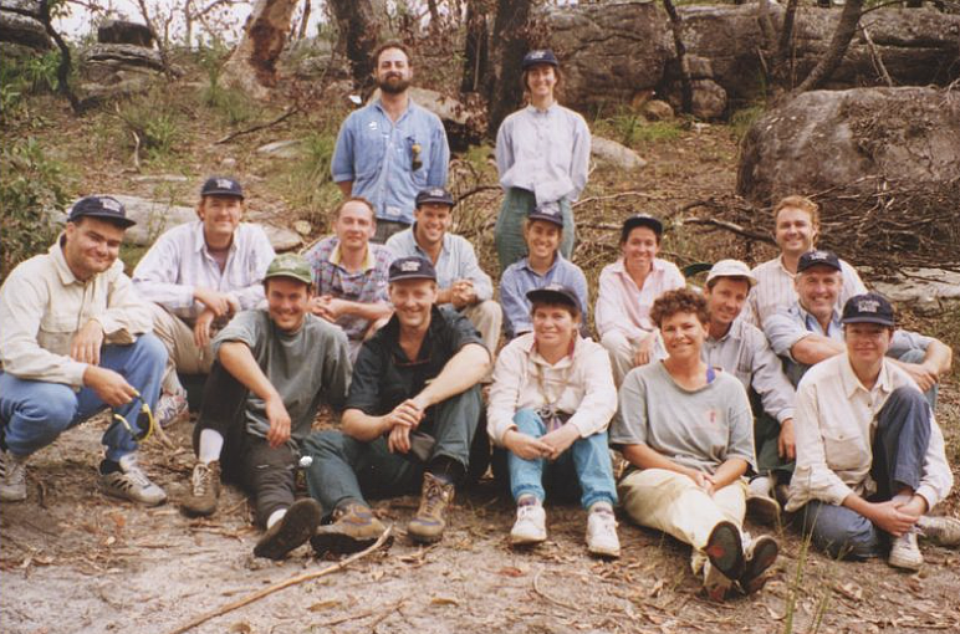
ICDA and BoardPro partnership unlocks digital governance tools for not-for-profits nationwide
Posted on 10 Dec 2025
Adele Stowe-Lindner, Executive Director, Community Directors The Institute of Community Directors…
Posted on 06 Sep 2023
By Greg Thom, journalist, Institute of Community Directors Australia

Legacy giving is a rapidly growing segment of the charitable landscape.
The dollar value of gifts left by Australians to charity in wills more than doubled from $214 million in 2010 to $465 million in 2022.
With Australia’s ageing population ushering in a period of unprecedented intergenerational wealth transfer – estimated at $2.6 billion by 2040 – the potential to tap into this rich vein of cash to do good is enormous.
About a third of Australians have considered leaving a gift in their will but haven’t yet filled out the paperwork – but legacy experts say it’s not lack of generosity that’s holding them back.
Rather, it’s a reticence within many families to discuss details of life after death – including the opportunity to leave money to a good cause – that is stopping this type of philanthropy from reaching its full potential.
It’s also one of the drivers behind Include a Charity Week.
Include a Charity campaign director Helen Beeby said that by highlighting the potential of wills to make a difference and change lives, the campaign aimed to prompt more people to think about leaving a legacy via bequest to the cause of their choice.

“We are aiming to foster a societal shift by encouraging open discussions about will drafting and including charitable gifts, along with encouraging the legal fraternity to reference the option in their will consultations,” said Ms Beeby.
“The theme for this year, ‘Will wonders never cease,’ was developed to spark a nationwide conversation encouraging Australians to consider, and commit to, leaving charitable gifts in their wills for causes they hold dear.”
Gifts in wills account for about 23% of all fundraising revenue in the sector and continues to grow.
Ms Beeby said is the growth was due to increased awareness through campaigns such as Include a Charity and more individual charities promoting bequests as an option for donors.
“Also, there’s a social and behavioural change happening as we move into the Baby Boomer era of increased wealth and assets.”
For some people, this brings with it a desire to make a meaningful difference by leaving a considerable financial gift in their will, a gift that would be financially difficult to give during their lifetime.
It also provides peace of mind that they are helping to forge a better future for subsequent generations.
“It also delivers a personal sense of oneself as autobiographical hero and a subliminal notion of immortality,” said Ms Beeby.
“Loved ones should come first in your will, but the money you leave to charity is an investment in a kinder, more inclusive tomorrow.”
While the amount bequeathed by Australians has doubled over the past decade, the country still lags many other nations, particularly the US and the UK.
A Productivity Commission inquiry into philanthropy is currently investigating ways to address this by exploring ways to double philanthropic giving by 2030.
As part if its submission to the inquiry, Include a Charity advocated for more streamlined estate processes and probate systems that would make it easier to include gifts to charitable causes in wills.
Ms Beeby said that for human beings who can’t live forever, the chance to leave a legacy for others and make a unique, indelible mark on the world that will last long after we are gone can be a powerful motivator.
“Including a gift in your will is a commitment to the longevity of causes you care about, be it curing diseases, supporting the arts, helping animals, defending the vulnerable or protecting our environment.
“Essentially, your will represents your final opportunity to influence this world significantly.”
The group CEO of Legacy Futures UK, Ashley Rowthorn, is visiting Australia as part of Include a Charity Week.

A 14-year veteran of legacy giving, he told the Community Advocate he was keen to bust some of the myths surrounding gifts in wills.
“One of these is that it’s too difficult,” said Mr Rowthorn.
“It’s not really. Sometimes it’s just a case of bringing it to the attention of the lawyer preparing the will, but quite often it is the person’s family that don’t want to talk about it.
“We really need to help make this a part of everyday conversation.”
Mr Rowthorn said that amid the current cost of living crisis, leaving a bequest in a will may be more practical than donating scarce cash in the here and now.
“Structured giving doesn’t have the same financial impact as donating day to day.”
Ms Beeby said not only is legacy giving an investment in humankind and a stake in our collective long-term future, but research indicates that it also helps with our mental, and even, physical well-being because of the sense of meaning it brings to our lives.
“Loved ones should come first in your will, but the money you leave to charity is an investment in a kinder, more inclusive tomorrow.”

Posted on 10 Dec 2025
Adele Stowe-Lindner, Executive Director, Community Directors The Institute of Community Directors…

Posted on 10 Dec 2025
The Australia Institute has called on the federal government to force Australian businesses to be…

Posted on 10 Dec 2025
Economic empowerment is essential to enabling recovery, restoring agency and preventing future…
Posted on 10 Dec 2025
A long-time advocate for rough sleepers in northern New South Wales has been named her state’s…

Posted on 10 Dec 2025
What a year 2025 has been, particularly at a national level where the Parliament and politics as we…

Posted on 10 Dec 2025
Anyone working in an organisation knows it: meetings follow one after another at a frantic pace. On…

Posted on 10 Dec 2025
As a qualified yoga instructor who learned the practice in her hometown of Mumbai, Ruhee Meghani…

Posted on 10 Dec 2025
Community Directors trainer Jon Staley knows from first-hand experience the cost of ignoring…

Posted on 10 Dec 2025
Stressed, overwhelmed, exhausted… if you’re on a not-for-profit board and these words sound…

Posted on 10 Dec 2025
The Institute of Community Directors Australia trains over 22,000 people each year, which gives us…

Posted on 09 Dec 2025
The late Sir Vincent Fairfax is remembered as a business leader, a chairman of AMP, and an active…

Posted on 08 Dec 2025
A pioneering welfare effort that helps solo mums into self-employment, a First Nations-led impact…